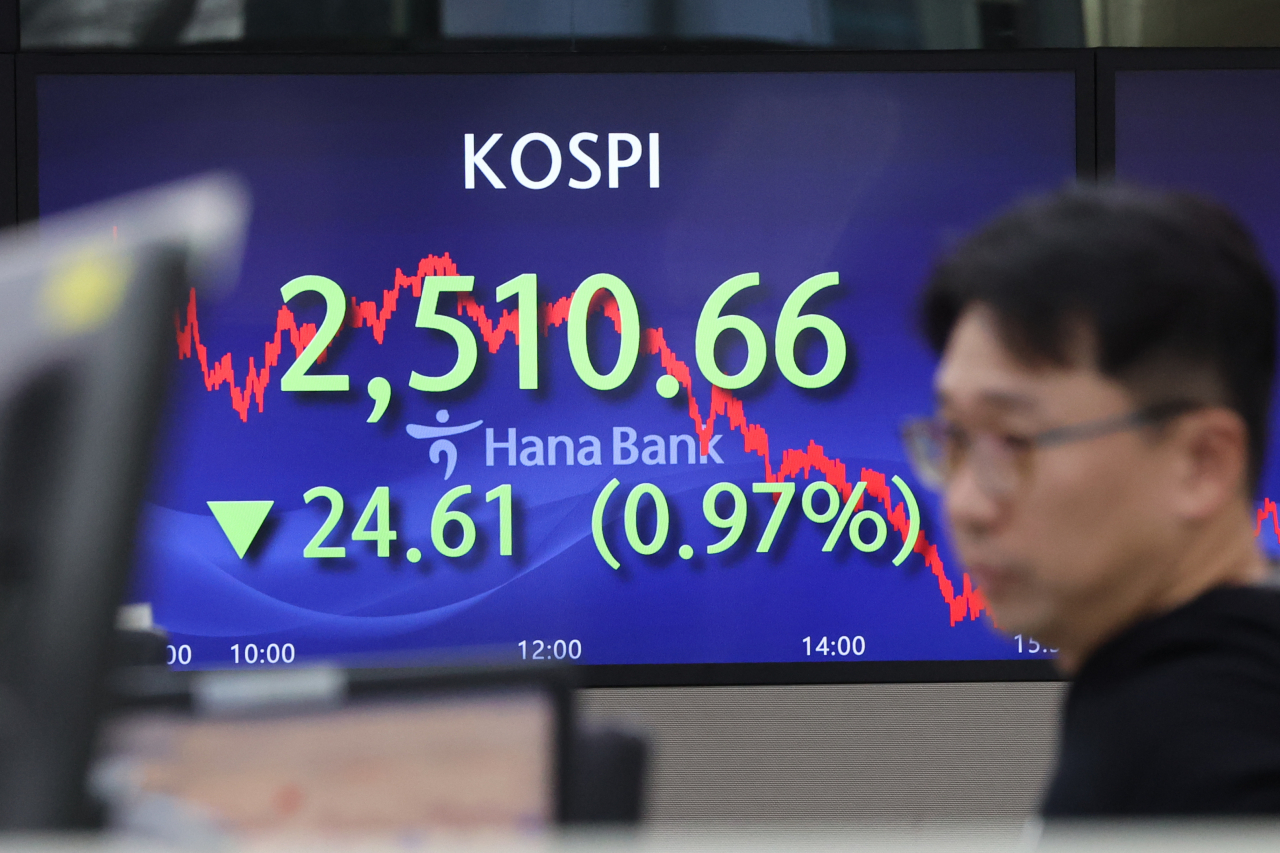 |
An electronic board at a dealing room of the Hana Bank headquarters in Seoul shows the Korea Composite Stock Price Index on Wednesday. (Yonhap) |
South Korea is lowering the bar considerably for foreign investors to enter the local capital market with several new measures -- including the abolishment of a cumbersome registration policy -- set to come into effect Thursday.
The new measures are being implemented in around a year since local financial regulators announced them in January, as part of their efforts to attract more overseas investment and meet global standards.
Among the reforms is the abolition of a 30-year-old registration policy introduced in 1992 that required foreign nationals to register with local authorities to trade stocks in the local market.
Starting Thursday, foreign investors will be allowed to open a securities account at local firms with just a passport number or, in the case of corporate entities, with a legal entity identifier.
Those who are already registered with the Financial Services Commission can continue using their registered numbers, the FSC said in a statement Wednesday.
Omnibus account holders will no longer be obligated to report on their settlements after each trade, reducing that to once a month.
The omnibus account was first introduced in 2017 to allow multiple foreign individuals to trade collectively through a single account to boost convenience and cut transaction costs. However, the regulation mandating immediate reporting of the transactions -- within two days of the settlement -- made the collective investment system practically useless.
Foreign investors will also be able to trade off-board more freely.
Until now, there was a limited scope of stocks foreigners could trade in local over-the-counter markets without prior approval from the Financial Supervisory Service.
With the easing of regulations, transfers that do not necessarily need approval in advance and are in high demand off-board -- such as property dividends and stock acquisitions that do not involve an ownership change -- can be executed by foreign investors and reported subsequently.
The FSC on Wednesday said it plans to operate a joint inspection team of related organizations, including the FSC and the Korea Exchange, to support the market settlement of the new measures.
The latest adjustments come as part of the country's efforts to resolve the "Korea discount" problem, referring to the undervaluing of Korean companies’ stock value relative to peer firms worldwide due to geopolitical risks and domestic market-specific structural factors that discourage foreign investment.
Foreign investors held around 30.8 percent of the local stock market as of the end of 2022, according to the FSC.
The government has been pushing to get the local market included in the top grade of global market indices. New York-based index provider Morgan Stanley Capital International has excluded South Korea from its index of "developed" markets since 2014, and once again denied the country an upgrade to the top status from its current "emerging" level this year.
Meanwhile, it will become mandatory for listed companies here to provide corporate filings in English from January 2024, starting with large firms and those with higher ratios of foreign stakeholders.
Next year, companies of over 10 trillion won ($7.6 billion) in market cap with over 5 percent of the shares owned by foreign investors, as well as corporations with over 30 percent foreign ownership in case of those sized over 2 trillion won in assets, will be required to publish important information -- such as settlements and trading suspensions -- in English, within three days of disclosure in Korean.







